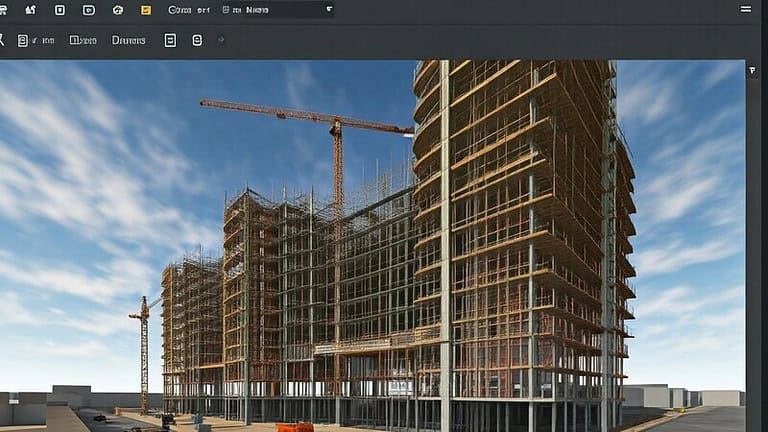In the competitive world of construction, securing projects hinges on accurate and timely bids. Traditional bidding methods, reliant on manual calculations and paper-based processes, can be slow, error-prone, and limit an estimator’s ability to optimize bids. Fortunately, the emergence of bidding estimation software has revolutionized the bidding process, offering a powerful tool to streamline project delivery, accelerate timelines, and optimize costs. This article delves into the transformative impact of bidding estimation software on various aspects of project delivery. We’ll explore how this technology empowers construction professionals to make informed decisions, achieve faster project starts, and ultimately, deliver successful projects within budget and schedule.
By empowering estimators with insightful data analysis and risk mitigation tools, ConWize construction bid management software fosters confident bidding decisions. This translates to not only winning projects but also setting realistic expectations for a smoother, more efficient project delivery from start to finish. Sign up today for free!
Impact on Project Delivery Methods
Bidding estimation software goes beyond simply automating calculations. It fundamentally changes how construction teams approach project delivery by fostering collaboration and enabling informed decision-making. Here’s how:
Enhanced Collaboration: The software acts as a central hub, allowing estimators, project managers, and subcontractors to collaborate seamlessly. Real-time data sharing facilitates transparent communication and ensures everyone is working with the latest project information. This eliminates the siloed approach of traditional methods, leading to more coordinated bids and a smoother transition from pre-construction to execution. “What-If” Scenario Planning: Bidding estimation software allows estimators to explore various project scenarios with ease. By adjusting key variables like material costs, labor rates, and construction methods, the software provides real-time feedback on how these changes impact the overall project budget and timeline. This “what-if” analysis empowers project teams to make data-driven decisions about project scope, delivery methods, and resource allocation.
Integration with Construction Management Tools: Many bidding estimation software solutions offer integration with other construction management tools such as project scheduling and budget tracking software. This creates a centralized data ecosystem, allowing for a holistic view of the project from start to finish. Project managers can leverage this integrated data to develop more accurate project schedules and identify potential risks early on, leading to a more controlled and efficient delivery process. Learn about BIM in construction estimating.
Impact on Project Timelines
The benefits of bidding estimation software extend far beyond the initial bidding stage. By streamlining the bidding process and facilitating efficient project planning, the software plays a crucial role in accelerating project timelines. Here’s how:
Streamlined Bidding Process: Manual calculations and data entry are significant bottlenecks in traditional bidding methods. Bidding estimation software automates these tasks, significantly reducing the time required to prepare and submit bids. This allows construction companies to respond to project inquiries faster, participate in more opportunities, and secure project awards sooner.
Faster Pre-Construction Phase: With quicker bid turnaround times, project stakeholders can move forward with pre-construction activities such as contract negotiations, permitting, and procurement of materials and equipment. This eliminates delays caused by waiting for finalized bids and allows for a smoother transition into the construction phase.
Improved Communication and Collaboration: As mentioned earlier, bidding estimation software fosters better communication and collaboration between project teams. This translates to fewer misunderstandings and delays during project execution. Issues can be identified and addressed promptly, preventing disruptions to the construction schedule.
Standardized Data Collection
Beyond the immediate benefits of faster bidding and improved collaboration, bidding estimation software offers a unique advantage that often goes unnoticed: standardized data collection. Traditionally, project estimates rely on historical data scattered across spreadsheets, emails, and even handwritten notes. This inconsistency can lead to inaccuracies and make it difficult to compare bids effectively. Bidding estimation software encourages the use of a centralized database with standardized data formats. This not only improves the accuracy of current bids, but also creates a valuable historical record for future projects. Over time, this standardized data becomes a powerful asset, allowing estimators to leverage past project information to generate even more accurate and competitive bids, creating a continuous cycle of improvement for the company’s bidding process.
Another unique and often overlooked benefit of bidding estimation software is its ability to facilitate risk identification and mitigation. Traditional bidding methods often involve a degree of guesswork, relying on experience and intuition to account for unforeseen challenges. Bidding estimation software, however, provides a platform for proactive risk management. Here’s how:
Scenario Modeling and Risk Assessment in Bidding Estimation
Scenario Modeling: As discussed earlier, the software allows for “what-if” scenario planning. This can be used to simulate potential project risks, such as material price fluctuations, labor shortages, or weather delays. By analyzing the impact of these risks on the project budget and timeline, estimators can identify potential problems early on and develop mitigation strategies.
Data-Driven Risk Assessment: Many bidding estimation software solutions integrate with historical project data and industry benchmarks. This allows estimators to compare their estimates against real-world data points, highlighting potential areas for oversights or underestimates. By identifying potential risks backed by data, estimators can make informed decisions about contingency plans and build buffers into the bid, leading to a more realistic and resilient project cost estimate.
ConWize bidding estimation software takes the power of scenario modeling and data integration a step further. Its robust risk management features allow users to not only identify potential issues but also assign probabilities and costs to them, providing a clear and actionable picture of potential project risks within the final bid. Learn more about The ConWize Construction Bid Management Software.
















